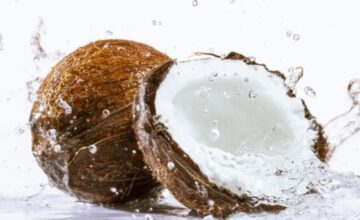The skin is the largest organ in your body. Protecting it from outside pollutants and chemicals can be challenging. Still, the food you eat each day is even more important.
Inflammation, acne breakouts, and premature skin ageing can be caused by a diet high in sugar and processed foods.
While these facts are rooted in science, several pieces of information are misleading, and we are here to help you figure out what is right and what is not.
First, let’s look at some ‘myths’ on the relationship between skin and diet.
Myth 1: Coffee is good for your skin
Although coffee isn’t dangerous in and of itself, it is a diuretic, which can lead to dehydration and dry, thirsty skin. So make sure you drink it in moderation.
Myth 2: Avocado is the perfect face mask ingredient
Avocados, citrus fruits, and nuts are frequently cited as key ingredients in at-home DIY masks or exfoliants, but they may not work for everyone. For example, people with latex allergies may react to avocado masks and anything containing chestnuts, bananas, passion fruit, etc.
Myth 3: Buying organic food is a waste of money
Even though conventional produce is far healthier than not eating any, there is evidence that certain fruits and vegetables are better bought from the grocery store’s organic section due to the lack of pesticides and other chemicals. It is more nutritious than conventionally grown produce.
Myth 4: Supplementing with collagen powder will improve your skin
Collagen may have other benefits, but it won’t directly affect your skin when you eat it. As a result, it will be digested by the digestive system and not reach the skin.
Myth 5: Chocolate causes acne
The effect of chocolate on your skin is dependent on its origin, ingredients, and type. Chocolate containing more than 70 per cent cacao is an excellent source of antioxidants that protect the skin and other organs. The myth that chocolate breaks your skin stems from some confections’ dairy content.
Myth 6: Greasy food causes acne
Not all greasy foods cause breakouts. Grease, however, can clog your pores and cause acne. Moreover, the ingredients used in frying greasy foods may promote inflammation, which is not good for the skin and other organ systems.
Myth 7: You can improve your skin’s appearance with kale, turmeric, vitamin C, vitamin E, cumin, and other natural products
Including products with these ingredients and nutrients in your diet can greatly improve your health. However, the scientific literature does not show that they are absorbed in the skin enough to exert an effect.





